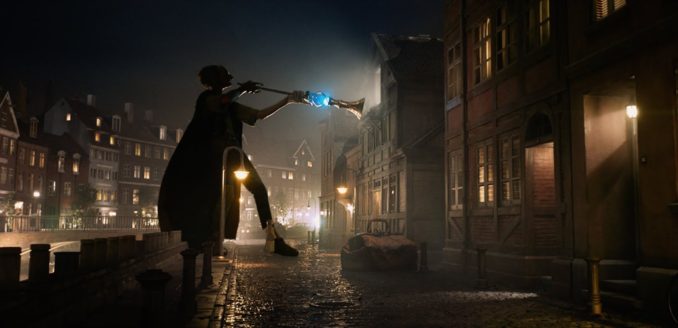
 The BFG is not a very accessible concept. It’s a Roald Dahl novel, and author who was never afraid to used themes and ideas that would challenge his audience. And this story is about a malaprops-speaking giant child snatcher, which isn’t really inviting to some audiences. So at the very least, the powers that be of any film adapration needed to meet their customers half-way. Part of the time The BFG does, part of the time it doesn’t.
The BFG is not a very accessible concept. It’s a Roald Dahl novel, and author who was never afraid to used themes and ideas that would challenge his audience. And this story is about a malaprops-speaking giant child snatcher, which isn’t really inviting to some audiences. So at the very least, the powers that be of any film adapration needed to meet their customers half-way. Part of the time The BFG does, part of the time it doesn’t.
The BFG (Mark Rylance) is a giant who travels into our universe, delivering pleasant dreams to the citizens of London. Unfortunately, precocious insomniac orphan Sophie (Ruby Barnhill) catches the BFG on his night time travels. Not willing to risk her telling the world about him, the BFG takes Sophie back to his home. This might not have been the best idea, because the BFG lives amongst his giant brethren, each one towering over the BFG the way he towers over Sophie. These giants aren’t as friendly, and if they catch Sophie, she will become a snack for them. When that grim fate comes dangerously close to happening, Sophie and the BFG conspire to put the other giants in their place.
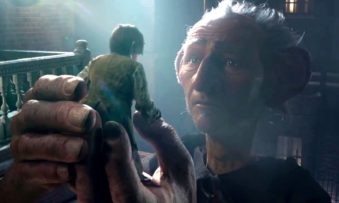 Some might consider talking about production design as the first good thing you speak of as the sign of a horrible movie. That’s not necessarily the case here, I am talking about the production design because it was the best thing about the film. From the streets of London to the BFG’s house, from the costumes to the props, the amount of detail and thought put into its design is impressive. And it is immersive. It brings you into this world as the settings and locations become like another character in the film.
Some might consider talking about production design as the first good thing you speak of as the sign of a horrible movie. That’s not necessarily the case here, I am talking about the production design because it was the best thing about the film. From the streets of London to the BFG’s house, from the costumes to the props, the amount of detail and thought put into its design is impressive. And it is immersive. It brings you into this world as the settings and locations become like another character in the film.
Mark Rylance gives a wonderful performance. Working in motion capture, he is still able to bring all the charm and the kindness of the BFG to life. Most of his dialogue, taken from the book, involves him mangling the English language, but he makes the words flow nicely and we are never left guessing for meaning.
A number of things have changed from the book to the film and most of the changes are for good effect. The gore and scariness is toned way down. A third-act deus ex machina skill for the BFG in the novel gets a bit of foreshadowing, making its appearance later a little more believable. . We also learned that Sophie is the second child he has kidnapped, the first most likely reaching a bad end.
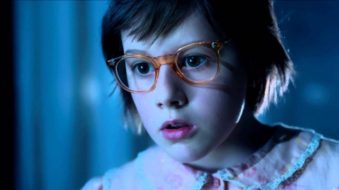 The main flaw for me, and it is a big one, is that you don’t really believe the connection between the BFG and Sophie. And the blame for this is big enough that there is enough to go around, but the majority should go to Barnhill and the way they portray Sophie in the film. To be fair, acting with completely CGI characters is difficult even with seasoned professionals, but Barnhill, a relative novice, seems out of her depth here. You never forget that she is acting. She never seems to truly inhabit her character. As a result, a lot of the scenes with Sophie and the BFG come off as stilted. Since a lot of the movie centers on their relationship, this seriously hampers your enjoyment of the film.
The main flaw for me, and it is a big one, is that you don’t really believe the connection between the BFG and Sophie. And the blame for this is big enough that there is enough to go around, but the majority should go to Barnhill and the way they portray Sophie in the film. To be fair, acting with completely CGI characters is difficult even with seasoned professionals, but Barnhill, a relative novice, seems out of her depth here. You never forget that she is acting. She never seems to truly inhabit her character. As a result, a lot of the scenes with Sophie and the BFG come off as stilted. Since a lot of the movie centers on their relationship, this seriously hampers your enjoyment of the film.
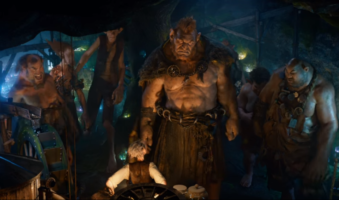 But Barnhill is also hampered by the script, the editing and even Spielberg’s directing. There’s a scene where they have Sophie, new to the BFG’s home, seem like she is going to be eaten by him (she even lands in a frying pan held by him at one point) and then a few seconds later, she is pretty much berating him,. I imagine they are trying to show her as sassy and plucky, but she comes off as not that smart (I mean, would you yell at something that can break every bone in your body with a flick of the wrist?). And later on in the movie, they demonstrate a connection between Sophie and the Queen’s maid (Rebecca Hall), but forgot to tell us how that connection was made (Hall, a damn fine actress, gives the appearance of someone who’s character mostly ended up on the editing room floor).
But Barnhill is also hampered by the script, the editing and even Spielberg’s directing. There’s a scene where they have Sophie, new to the BFG’s home, seem like she is going to be eaten by him (she even lands in a frying pan held by him at one point) and then a few seconds later, she is pretty much berating him,. I imagine they are trying to show her as sassy and plucky, but she comes off as not that smart (I mean, would you yell at something that can break every bone in your body with a flick of the wrist?). And later on in the movie, they demonstrate a connection between Sophie and the Queen’s maid (Rebecca Hall), but forgot to tell us how that connection was made (Hall, a damn fine actress, gives the appearance of someone who’s character mostly ended up on the editing room floor).
That makes The BFG frustrating. The stuff that is good about it is transcendently good. But that is not enough to make up for its flaws. It has only made $22 million in its first weekend of release. With a $140 million budget, it needs a big return from overseas to be profitable. It was an uphill battle to begin with, but the film itself did it know favors. And that’s too bad.


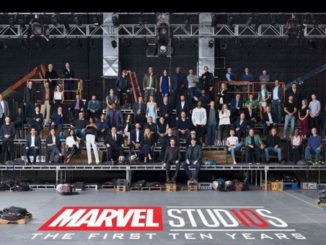

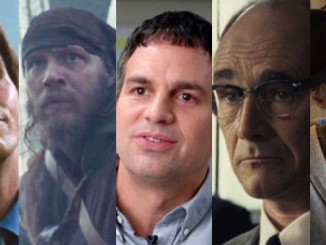
Dawn Korus Winarski liked this on Facebook.